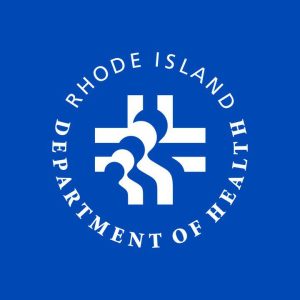
Woonsocket Overdose Rate More than Double the State Rate Over Six Month Period
In a continuing, disturbing trend, the City of Woonsocket continues to outpace the State of Rhode Island in reported drug overdoses. And while these numbers, as in the case of many government statistics, may reflect a number of intangibles … influences that in some communities that may lead to a higher or lower reporting level, the fact that a reported rate of 376 non-fatal overdoses in a 6-month period is slightly more than double the statewide average of 185 overdoses points out the continuing disparity of the Opioid Crisis in the urban core
The Coalition will be reaching out to the Harm Reduction Community in the coming days for additional perspective, and commentary
From The Rhode Island Department of Health:
 In the past six months, the Woonsocket community has had a significantly higher rate of overdose burden that is more than twice the statewide average. There was a rate of 376 non-fatal opioid overdose reports in Woonsocket per 100,000 residents compared to the statewide rate of 185 reports per 100,000 residents. These data are monitored daily by RIDOH’s non-fatal overdose Integrated Surveillance System, an enhanced system that tracks non-fatal, opioid overdose trends statewide, regional hot spots, and the utilization of emergency medical care.
In the past six months, the Woonsocket community has had a significantly higher rate of overdose burden that is more than twice the statewide average. There was a rate of 376 non-fatal opioid overdose reports in Woonsocket per 100,000 residents compared to the statewide rate of 185 reports per 100,000 residents. These data are monitored daily by RIDOH’s non-fatal overdose Integrated Surveillance System, an enhanced system that tracks non-fatal, opioid overdose trends statewide, regional hot spots, and the utilization of emergency medical care.
The drug supply continues to contribute to this public health crisis. Illicit fentanyl, a potent opioid, and xylazine, a veterinary tranquilizer not approved for human use, dominate the illicit opioid supply and have also been detected in other drugs like cocaine, crack cocaine, methamphetamine, and counterfeit pills. Pills obtained from sources other than a pharmacy should be assumed to have fentanyl.
What Anyone Can Do
- Learn what an overdose looks like and how to respond, especially if someone you know may be using substances.
- Access 24/7 behavioral health resources available in Rhode Island, such as the 988 Suicide & Crisis Lifeline, the BH Link Walk-In Triage Center, and the Rhode Island Buprenorphine Hotline (401-606-5456).
- Use Woonsocket treatment and recovery support services like Community Care Alliance and Comprehensive Treatment Centers/Discovery House.
- Visit PreventOverdoseRI.org to learn about free local resources like peer recovery support, naloxone, fentanyl test strips, family support, and more.
- Help raise awareness by forwarding this public health advisory to people you know or sharing this link so others can sign up to receive this information.
- Get involved with the Governor’s Overdose Task Force activities and stay informed through Task Force newsletters.
- Add Prevent Overdose RI as a resource to your municipal website.
- Request free naloxone and naloxone training by using this form.
- Connect with a Health Equity Zone (HEZ) or Prevention Coalition near you and find out how you can collaborate to address the local substance use crisis.
- Visit the RIDOH Overdose Prevention Resources for Community Partners webpage to access Woonsocket’s Community Overdose Engagement (CODE) At-A-Glance Report, webinars, data presentations, and more.
- If one of your patients uses drugs, take time to talk to them about the drug supply, including the risks of fentanyl, xylazine, and counterfeit pills. Recommend that they use caution when using any pills that they did not get from their pharmacist.
- Help guide safer substance use practices including harm reduction practices like testing substances with fentanyl test strips, trying to use with others, and having naloxone in the event of an emergency.
- Visit RIDOH’s Substance Use Disorder Assessment, Treatment, and Recovery Resources webpage for specific information for healthcare professionals.







Comments